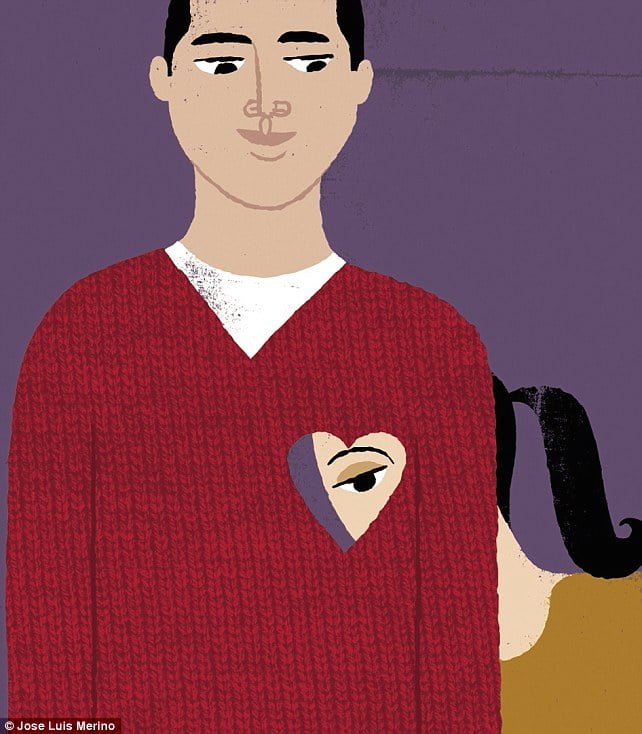Editor’s Note: This month, that is September 2020, FII’s #MoodOfTheMonth is Boys, Men and Masculinities, where we invite various articles to highlight the different experiences of masculinity that manifest themselves in our everyday lives and have either challenged, subverted or even perpetuated traditional forms of ‘manliness’. If you’d like to share your article, email us at pragya@feminisminindia.com.
“Gender is, thus, a construction that regularly conceals its genesis.“
—Judith Butler
Moments after I was born, a proclamation arrived—‘chele hoyeche’ (it’s a boy), uttered ignorant beings of my kind. I have no way of knowing whether the hospital chamber was cramped, except for stories that I don’t remember. Yet, I wonder if the celebratory air in that room carried any hint of awareness regarding the stipulations that the phrase entailed.
From what I know, it was axiomatic of how I should dress, talk, feel, and have fun, bestowing upon my existence a burden to carry for a lifetime, no matter how I wish to shake it off. As a presently-straight, upper-caste, ‘Hindu’ male, my privileges are so vast that they often cause shame, and even guilt, while inevitably relating long-drawn, oppressive histories to my being.

My social position ‘allows’ me to have experiences that many wouldn’t dare imagine—such are the existing imbalances of our world. Even if I am, say, disloyal to my partner, I can expect to find someone who ‘understands’; someone willing to justify my actions as being ‘quite natural’, for after all, ‘men will be men’, as popular taglines proudly and unabashedly assert.
In the naive haze and adrenaline overdose of the rebellious teenage years, every friendship was indomitable, every romance boundless. Now, long after the clouds have cleared and the sun shines on pleasant days, having grown over many disloyalties disguised as progressive ideals of love and lovemaking, I have begun to see how relationships from those days lacked depth and understanding.
Privileges, as if by nature, shape our actions invisibly—at least as long as we are unaware of how they dictate our lives. In writing this piece, I shudder in retrospect, anxious of confronting the ‘masculine’ vices that have percolated into my every thought and action, since that day of the declaration.
In their encyclopedic project—Men & Masculinities (2003)—editors Kimmel & Aronson point out that “men are not born; they are made.” They assert further, that we (men) make ourselves, by participating in “social life as a man”, and in doing so, we actively construct our masculinity. That is to say, I wasn’t merely a passive recipient and can’t feign innocence for the wrongdoings of manhood.
Despite enabling myriad possibilities, my gendered socialisation has vehemently denied me the permission to be emotionally expressive. From ‘mard ko dard nahi hota’ (men don’t feel pain) to peer group slangs like ‘sissy’ and so on, there is a coercive dictum against would-be-men (or simply, men) being sentimental. Emotionality—as conceived within the dominant, normative discourse on masculinity—is an essential quality of femininity, and then again, the woman is the “classic other” for the man. A man in our culture, thus, should be everything that is ‘un-womanly’, even if that means denying (or, defying) a fundamentally humane capability.
As a child, if someone was around when I was in pain or anguish, they would promptly remind me that big boys don’t cry. We often speak longingly about how childhood is the best time in our lives, but in those days, the urge to grow up—to belong—engulfed me and I took these sermons for granted, trying to mould myself accordingly. Of course, the pain didn’t go away, it never does. But I learnt the ways of denial. If I had known then, as I do now, that there’s nothing natural about boys being stoic—rather, quite the contrary—my childhood would have probably been less conflict-ridden, both internally and externally. I wish I could enquire that if it is ‘natural’, then why is the enforcement coercive?
In a man’s world, emotions are weaknesses that, if not completely dominated or denied, must be dealt in utter privacy. I, for one, would weep muffled tears, behind closed doors, complaining to imaginary listeners. Adolescence, as we know, is an emotional roller-coaster, when life goes wayward with massive upheavals that, at the time, are often incomprehensible. Unlike gender, the turmoil of this formative life-phase is truly natural for all, notwithstanding the varied manifestations and degrees.
When we love as men—as armoured beings—we somehow fail to fully devote ourselves and to empathise. For long, I lived with the misconception that it’s enough to harbour love within, not realising that, ultimately, it is the expression of affection, of care, and of loyalty that gives tangible form to the abstract noun that is love.
It’s a time when we seek liberation and bonding, all at once, while often perceiving them as contrary entities, if not contradictory. Speaking for myself, to walk on freedom’s path was to sever existing bonds on one hand; while on the other hand, I was desperately in need for companionship. In the naive haze and adrenaline overdose of the rebellious teenage years, every friendship was indomitable, every romance boundless.
Now, long after the clouds have cleared and the sun shines on pleasant days, having grown over many disloyalties disguised as ‘progressive’ ideals of love and lovemaking, I have begun to see how relationships from those days lacked depth and understanding. Not because there wasn’t any love, but because I was incapable of loving, of realising that relationships—no matter their form or meaning—are built in a two-way process, where expression is the cornerstone.
Also read: PUBG And The Glorification Of A Hyper-Toxic-Masculinity
To be man enough is not only to dominate pain, but almost the entire gamut of emotions. Intimacy—except for sexual, and that too, dominantly heterosexual—is mostly out of bounds for a man, prohibiting overt expressions of affection. During a phase in his life, a man can be the ‘deewana’, but for most parts, he must be angry, rough, and tough. In normative terms, a man’s love is measured and composed—a part of his duty—and never unbridled, erratic, or illogical. Men, along these lines, must love rationally, which in effect, somewhat precludes their ability for selfless, passionate, and ‘motherly’ love. The process, of course, is more complex and nuanced than I can possibly explain with my limited scientific understanding of the subject.

Anyway, as many prominent strands of our folklore and philosophy variously define, in order to love truly, we must become one with its object. Love, in this sense, is an act of submission—letting go—and immersive, passionate devotion, wherein it ceases to be a means and emerges as an end in itself. Indeed, to a great extent, such is the ideal form and our mundane expressions—masculine or not—are quite distanced from this state of all-encompassing love. Yet, even in the context of our daily realities, to love is predominantly to empathise; to put oneself in the other’s place, even without becoming one with the lover, as became Meera or Nitai or Kabir.
When we love as men—as armoured beings—we somehow fail to fully devote ourselves and to empathise. For long, I lived with the misconception that it’s enough to harbour love within, not realising that, ultimately, it is the expression of affection, of care, and of loyalty that gives tangible form to the abstract noun that is love. Love becomes meaningful when expressed, and yet, expression is something that we are incapable of, unless we unlearn our normative masculinity.
Time and again, feminist scholars have reiterated the need to perceive masculinity in plural terms—masculinities—to include within its folds other forms of this gendered existence that the dominant, stoic, normative masculinity excludes. Coming out of the pages full of complex syntax and vocabulary, percolating into our practical lives, such re-learnings of our identities could enable us to make better sense of the world.
Also read: Saviour Syndrome Of Masculinity: Can Our ‘Heroes’ Never Break Down?
Probably, only probably, it would have allowed me to be more at ease with my being, in the times when I remained peripheral to peer groups that discussed cars, sports, and discouraged making friends with girls. Also, in the journey thereafter, I could have possibly been more receptive and more capable of experiencing the world as others might, as my lover might, as my friend might, and as you might.
Alongside writing, both professionally and for leisure, Shiladitya cherishes the experiences of music, reading, and cinema, while also being perpetually eager to interact with people’s lives and cultures. You can find him on Facebook, Instagram, LinkedIn and Twitter.
Featured Image Source: Feminism In India




